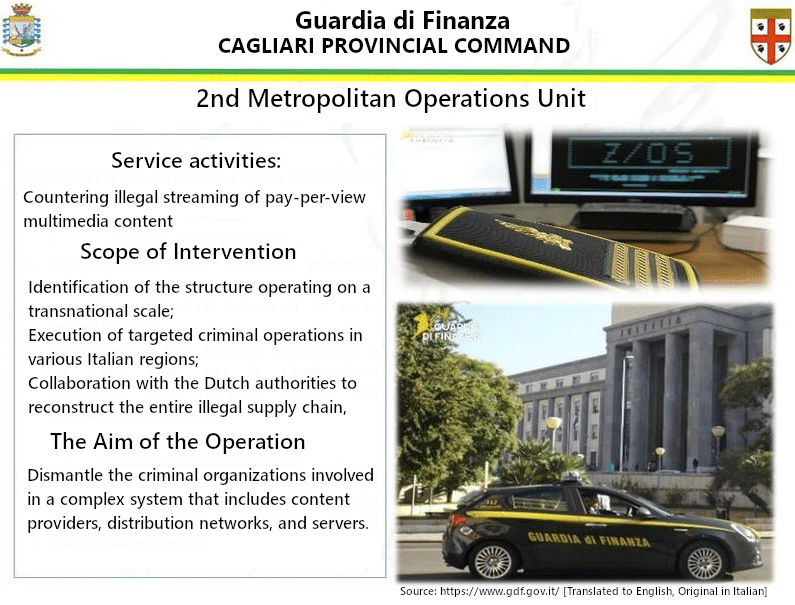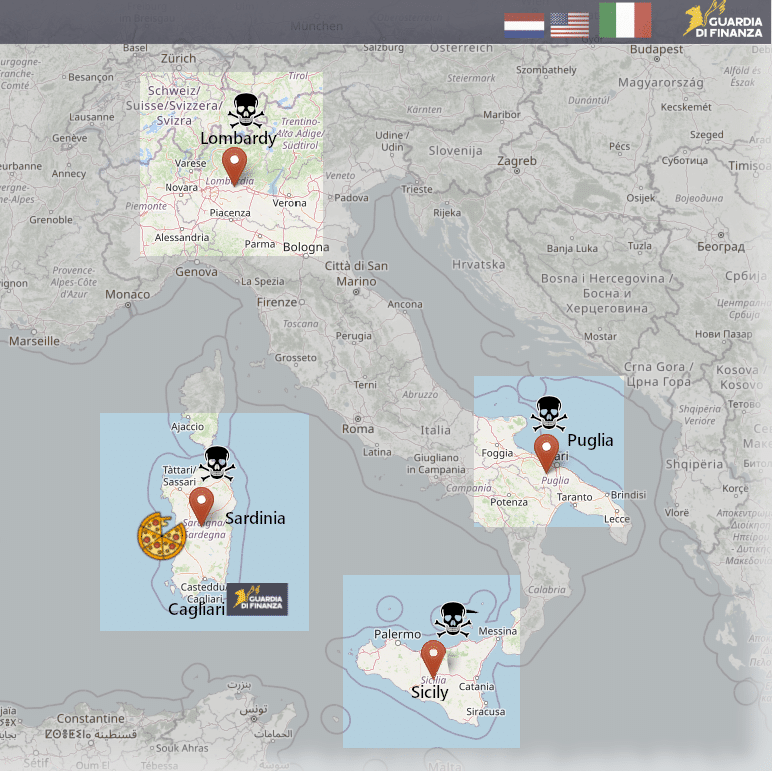New Pirate IPTV Police Operation Raises Stakes For Resellers & Customers
 Law enforcement operations against pirate IPTV networks are now a regular occurrence, particularly inside the EU. Yet those that manage to physically take down or seriously disrupt an entire supply chain are very rare indeed and in practical terms, increasingly unlikely to happen.
Law enforcement operations against pirate IPTV networks are now a regular occurrence, particularly inside the EU. Yet those that manage to physically take down or seriously disrupt an entire supply chain are very rare indeed and in practical terms, increasingly unlikely to happen.
The fact that international law enforcement collaboration can be very effective is undisputed, with the caveat that success often extends only as far as borders and politics allow. One of the most obvious signs that shutting down sources remains a problem is the constant calls for site blocking measures; questionably effective, perhaps, but easier to control than sources in far-away lands.
Italy Punishes Those Closer to Home
With transparency still an obstacle, measuring the effect of Italy’s Piracy Shield blocking initiative is difficult. Increasing legal pressure on internet intermediaries and even its own citizens may suggest that alternatives are thin on the ground.
An announcement this week by the Guardia di Finanza, revealing a multi-location operation targeting a pirate IPTV network, is the latest in a series of similar operations over several years. Targeting those who can be reached on home soil, not necessarily the sources who supply them, is a common limitation of national borders; this time around, however, the dynamics of the game may be about to change.
It Began With a Pizza
Without reference to specific dates, on Wednesday the Provincial Command of the Guardia di Finanza of Cagliari reported a series of search and seizure operations in various Italian regions. The trigger was an inspection by the Guardia di Finanza’s 2nd Metropolitan Operations Unit of a “public establishment” in the Cagliari region; a pizzeria according to unofficial sources.
The pizzeria allegedly screened PPV events on-site via illegal set-top boxes, which didn’t go unnoticed by GdF investigators who took a keen interest in the IPTV network supplying the content.

“Preliminary investigations subsequently uncovered a complex network, identifying a series of actors involved along the piracy chain, including content providers, distribution networks, and servers,” the GdF said in a statement.
“Given that initial evidence suggests that the criminal organization operates on a transnational scale, investigative activities are now continuing to reconstruct the entire supply chain and acquire additional sources of evidence, with the involvement of the U.S. and Dutch authorities.”
Local Targets
With at least some international assistance, reports indicate that operations were launched in at least four regions of Italy; Sicily, Puglia, Sardinia, and Lombardy in the north. Unofficial sources claim that 10 people are now under investigation following the search and seizure operations.

A video released by GdF (below) shows officers in what appears to be a private home. At one point an officer stacks what appears to be IPTV-type set-top boxes onto a table, while another collects unidentified evidence from a shelf in another room. At face value this is most likely the home of a lower-tier reseller and if the network remains intact, he or she will be easily and quickly replaced.
Indeed, of the ten people said to be under investigation, reports suggest that as many as nine could be resellers. Traditionally that has led to the shrugging of customers’ shoulders and a few minutes spent finding a new supplier.
Busted Resellers Could Become Settlement Fuel
In this case, things may go a little differently. The Guardia di Finanza describes an initiative of “strategic importance” due to a new approach and new set of targets.
“This operation represents a crucial step in the fight against audiovisual piracy. The strong synergy between the Cagliari Public Prosecutor’s Office and the Guardia di Finanza allows us, on the one hand, to dismantle the criminal organizations operating in this sector and, on the other, to impose criminal and administrative sanctions on all potential buyers upon identification,” Wednesday’s statement reads.
Raids on resellers are now the means through which IPTV subscribers’ identities are obtained by the authorities, with one reseller’s records potentially exposing thousands of customers. Over 2,500 subscribers have been fined already this year, authorities say, but that may not be the end of the matter, or the financial consequences.
DAZN, SKY and Serie A and the Big PR Gamble
DAZN, SKY and Serie A recently announced that they have obtained the identities of those fined by the police from the prosecutor’s office. So, on top of a relatively small fine of roughly €150, rightsholders say they’re preparing legal action in which they will demand “thousands of euros” from each person as compensation for their losses.
How much of this claim is set in stone is unknown. It might be a strategic bluff, or it might not. It certainly has the potential to be a PR disaster, or depending on how things play out, it may not. Interestingly, commentary from regulator AGCOM appears to be absent, but when it comes to predicting the future, a comment wouldn’t help in any way.
Despite the success of the operation, the flow of pirate streams will most likely continue, many from overseas. The question is whether the appetite to consume them will continue in the wake of a promised assault by rightsholders’ on their prospective customers.